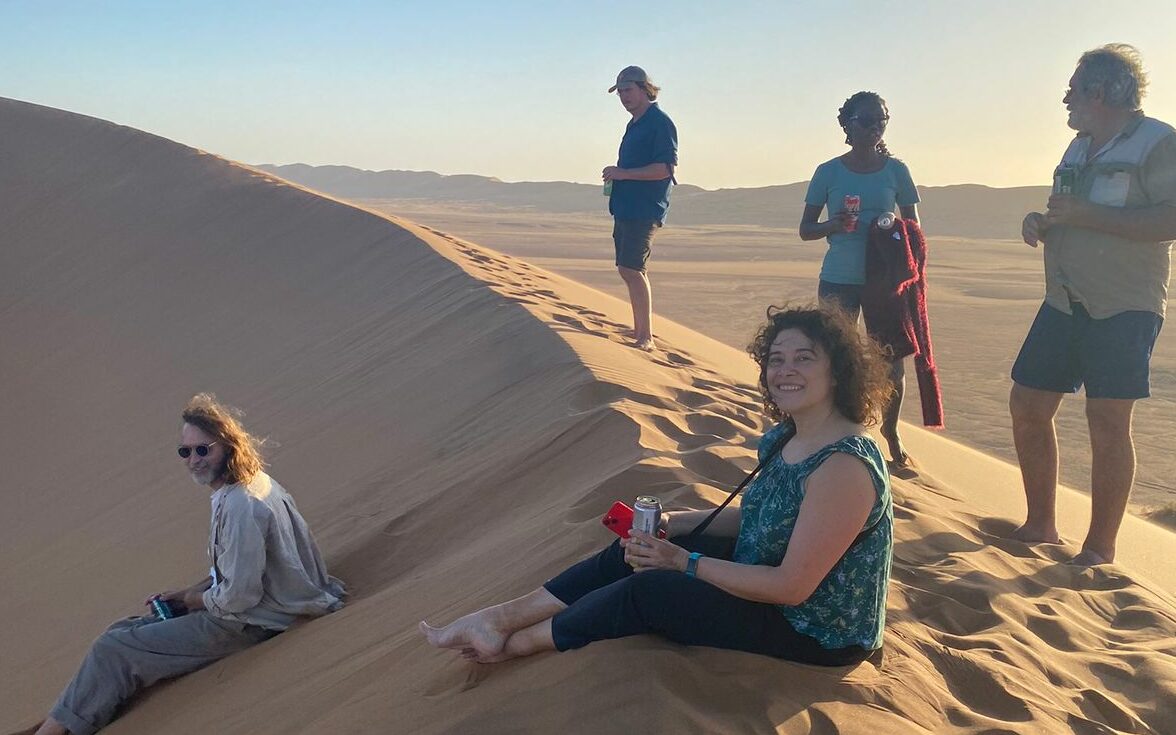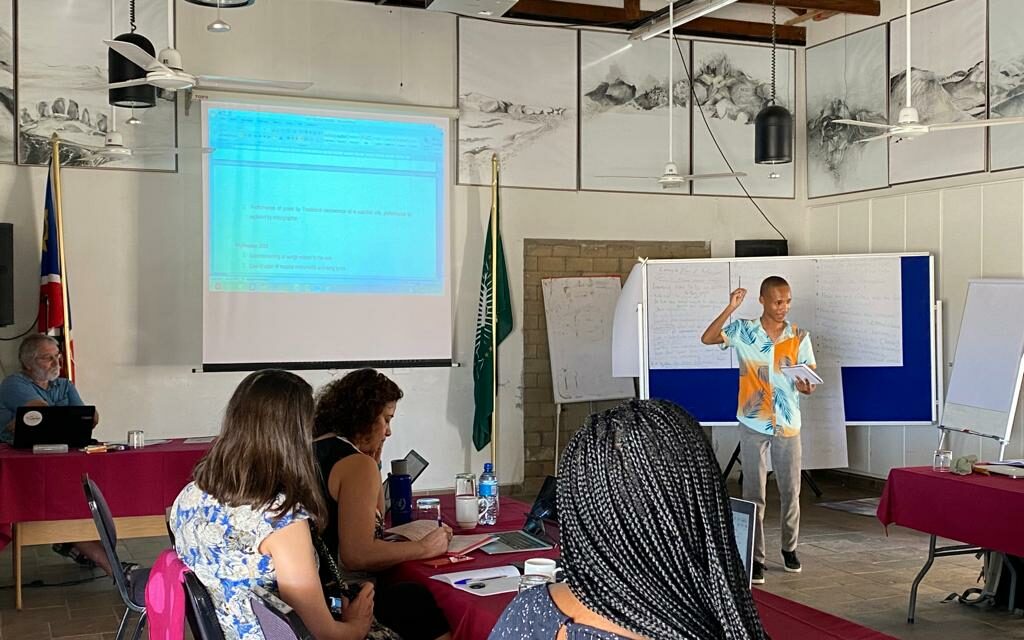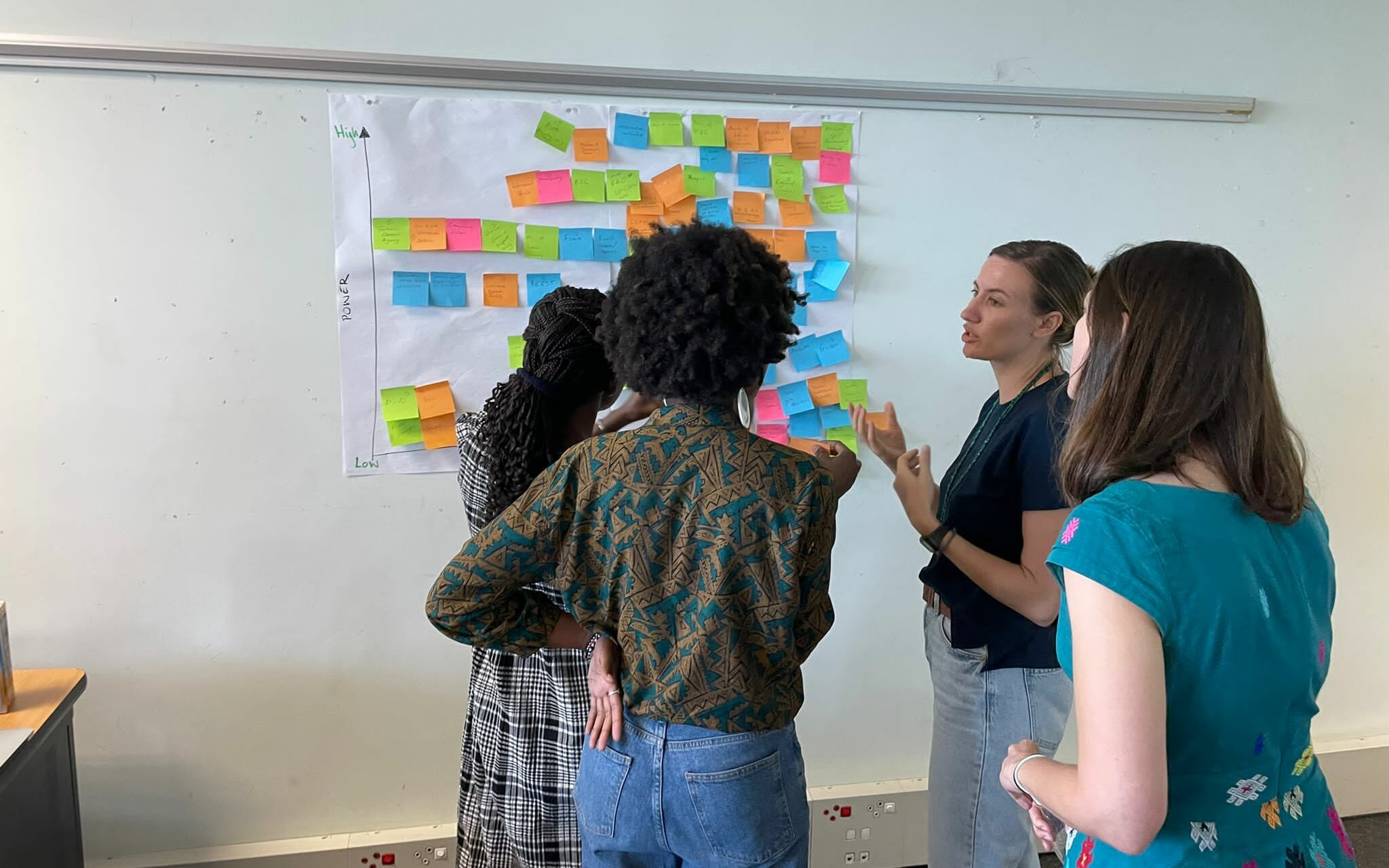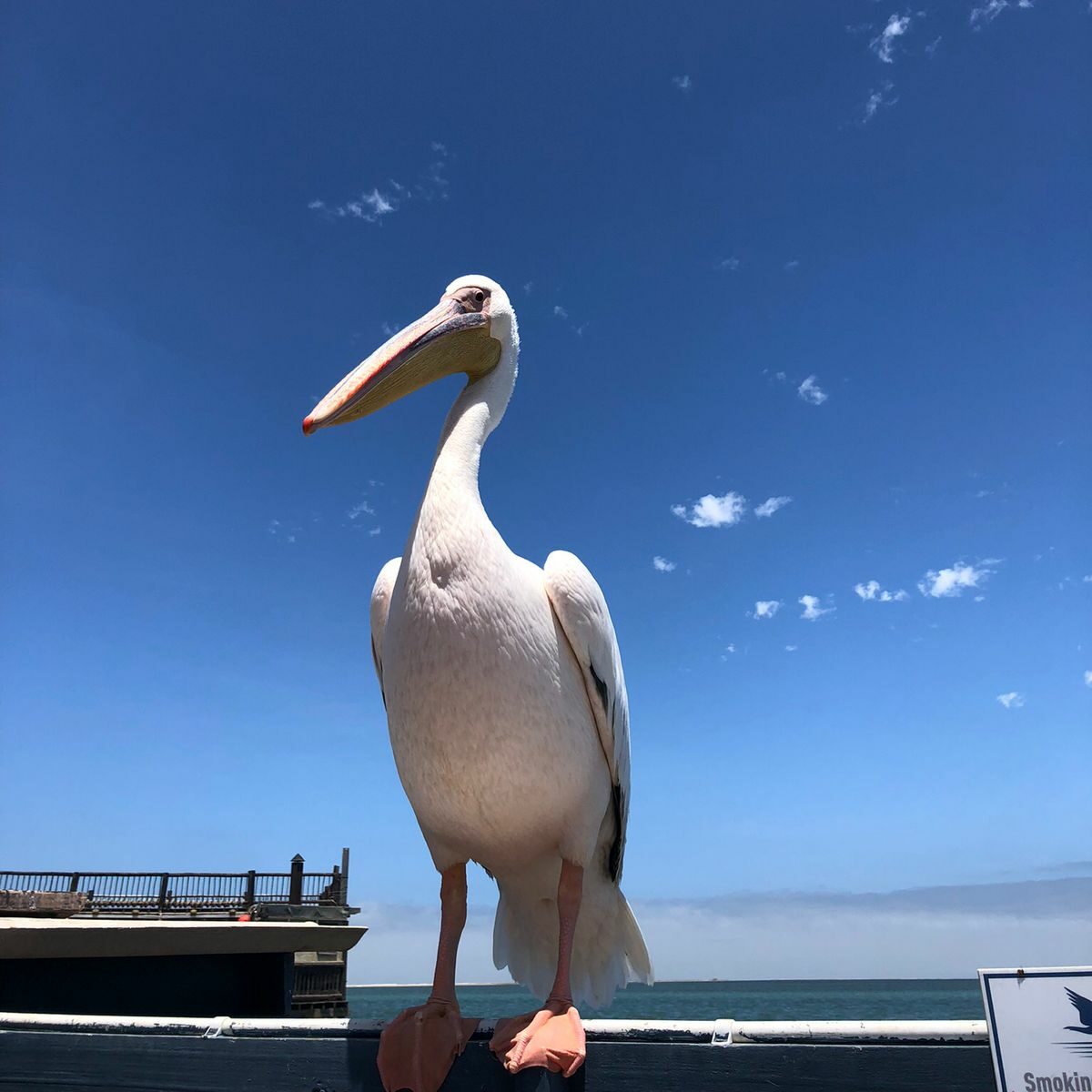working with marginalised communities for more equitable ocean decision-making and other news from Namibia

At the beginning of 2023, the Hub’s Namibia team had a pleasure to host Hub colleagues from Ghana, South Africa and Scotland and engaged in various knowledge-sharing activities. “The highly inspiring visit strengthened the Hub’s relations with the University of Namibia”, says Dr Sirkka Tshiningayamwe (University of Namibia). The Namibia team has also been busy supporting the Topnaar people, the original inhabitants of Namibia’s coastline, to collect their elders’ living memories of their connections to the ocean and intangible cultural heritage. “The plan is to do this through a documentary and some artistic work led by Topnaar youth. Topnaar community is amongst the marginalised communities in Namibia,’ Sirkka says.
This blog post highlights key research activities and developments that have taken place in Namibia in the past few months.

Bringing the Topnaar people to the centre stage of ocean decision-making
The Topnaar people, the original inhabitants of Namibia’s coastline, were forcibly removed and excluded from access to marine resources and decision-making on the ocean. Hub researchers in Namibia have built and maintained trusted relationships with 14 distinct groups of coastal and ocean-dependent stakeholders who have identified lack of voice in decision-making processes and limited understanding of the law pertaining to ocean governance as major barriers preventing them from benefitting from the blue economy.
Among these 14 groups, Hub researchers in Namibia have been working with the Topnaar community for the past three years to understand their history as the first inhabitants of the Namibian coast and their limited, if any, involvement in ocean governance at present. Prior to the provision of support through the Hub (including co-facilitating a workshop with FAO on the first national policy on small-scale fisheries), the Topnaar have never had the opportunity to become involved in consultations about the blue economy, despite their historical, cultural and economic connections to the ocean. Hub research is thus focusing on advancing understanding of the continuing connection of the Topnaar with the ocean, with a view to having them better recognized as ocean knowledge and right holders in relevant decision-making processes.
The Hub UNAM team has co-developed an innovative project led by Indigenous youth from the Topnaar community. In January 2023, Hub researchers from South Africa, UK and UNAM met with Topnaar youth to co-definy problems and sharing research plans, including potential use of the Empatheatre methodology used in South Africa. Researcher met at Gobabeb Namib Research Institute (Hub’s NGO partner) that has a long history of collaborating with the Topnaar people. The main outcome of the meeting was a clear action plan for the Topnaar youth-led project titled “Hurinin -Sea People of the Namibian coast”, which aims to unpack the untold ocean stories of the Topnaar community in Namibia under the leadership of Topnaar youth Glen Gellert Kasper who is a Junior Councillor of the Topnaar Traditional Council. Gobabeb Namib Research Institute will support the project implementation, in close collaboration with UNAM.

‘Customary law of the coast and sea in Africa’ workshop brought together researchers from Namibia, South Africa and Ghana
On 1-2 February 2023, an internal workshop was held at the University of Namibia by the One Ocean Hub’s Customary Laws of the Coast and Sea Research Network. The workshop brought together research teams who have been exploring the role of customary laws in ocean governance in Ghana, Namibia, and South Africa. The workshop provided a space for the researchers to share progress, and identify cross-country learning and inter-disciplinary synergies. Researchers advanced mutual understanding of different methodologies, opportunities and challenges surrounding customary laws in ocean governance research. Read more about the workshop here.

The way forward
The visit also served to share the research plans of the UNAM team, drawing primarily from the disciplines of law, marine fisheries, education and sociology
“Furthermore, the work plan includes capacity building on seaweed harvesting and sea food and products festivals for women and youth in the coastal area. This is primarily to provide supplementary ways of livelihood for these communities and to expose them to variety of marine resources as a way of sustaining the current explored marine fisheries,” Dr Sirkka Tshiningayamwe (University of Namibia) says.
“Going forward, Namibia and South Africa researchers also hope to support capacity expansion for the Topnaar youth after they have identified their needs during the first months of the project implementation”, Sirkka adds.
Finally, Hub researchers in Namibia are excited about potential collaboration with the national Office of the Ombudsman to advance research on human rights and the blue economy. A Memorandum of Understanding between the University of Namibia and the Ombudsman is currently under preparation, to ensure that inter-disciplinary research findings can be taken into account by the Ombudsman in actions to protect human rights dependent on a healthy environment. In addition, the UNAM team will raise awareness among coastal and ocean-dependent communities about the opportunities to share directly with the Ombudsman offices any specific concerns about participation in decision making and other forms of discrimination.
